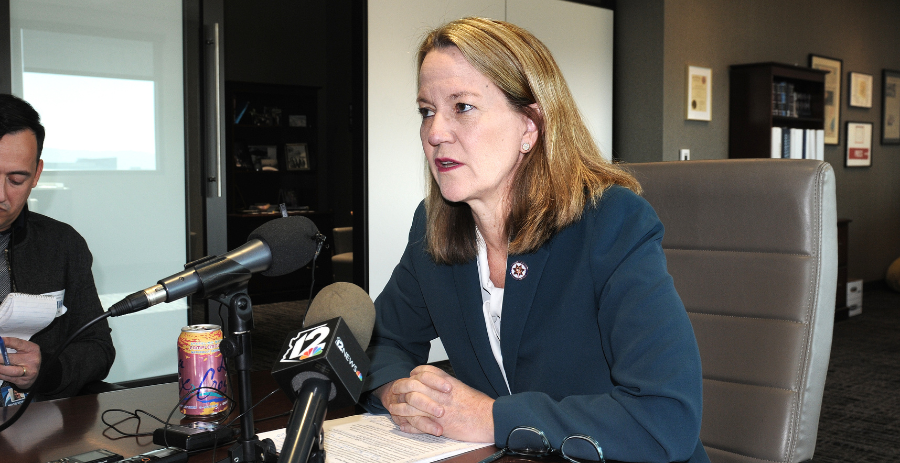fake electors
Mayes Unveils Private Group’s Blueprint for Prosecuting ‘Fake Electors’

An organization claiming nonpartisan status, yet known for its Democratic affiliations, has submitted a comprehensive 47-page report to Arizona Attorney General Kris Mayes regarding the prosecution of “fake electors.” This report came prior to the indictments issued against these individuals.
According to documents obtained by Capitol Media Services, the States United Democracy Center delivered a well-documented timeline detailing how 11 Arizona Republicans falsely asserted themselves as valid electors pledged to Donald Trump during the 2020 presidential election—despite Joe Biden’s victory. The report also listed potential charges against those involved in this scheme.
Richie Taylor, a spokesman for Mayes, refrained from confirming whether the report was solicited by her office. However, Dan Barr, Mayes’ chief deputy, had engaged with States United just two months prior to receive advisory services on securing election integrity.
Taylor insisted that States United’s work on the fake elector scheme operated independently from the Attorney General’s Office investigation. He noted, “They prepared this memo… really before our case had even ramped up,” pointing out that the findings were based on publicly available information.
The report did more than outline historical events; it identified specific Arizona laws applicable for prosecution and provided recommendations for legal action. Furthermore, it addressed the possibility of charging individuals years after the alleged offense took place, emphasizing the state’s seven-year statute of limitations for these crimes.
The indictments pose a significant challenge, with ten of the eleven fake electors facing nine felony charges, including fraud and conspiracy. As the state readies for a January 2026 trial, Mayes confirmed that the case would progress regardless of the results of the upcoming presidential election.
Among the indicted, Lorraine Pellegrino, secretary of the electors group, previously pleaded guilty to a single charge of filing a false instrument, resulting in unsupervised probation. Jenna Ellis, a former Trump attorney, remains implicated but has secured a cooperation agreement to testify in exchange for the potential dropping of her charges.
Initially marked as “attorney-client privilege,” the report had to be disclosed during the defendants’ discovery process. It offers detailed accounts of events following the 2020 election, including significant pressure from Trump associates to replace the certified electors.
The extensive memo identifies six specific violations of Arizona law: forgery, tampering with public records, criminal impersonation, presenting a false instrument for filing, fraudulent schemes, and conspiracy. The final indictment by Mayes incorporates charges of forgery and conspiracy from this list, while also including a lesser charge of fraudulent schemes.
The report underscores potential defenses for those indicted, including claims of relying on legal counsel’s guidance, though this could require waiving attorney-client privilege—a risky move for those defendants.
Mayes’ office cited the protracted nature of complex investigations to justify the timing of the indictments, clarifying that her predecessor, Mark Brnovich, did not investigate the fake electors during his term.
In conclusion, the involvement of States United, while claiming nonpartisan endeavors, has demonstrated political implications in Arizona’s election landscape. The group has previously expressed opposition to Republican-led electoral changes and has supported Democratic initiatives.
As of now, States United has not responded to inquiries regarding its role in the indictments.


















